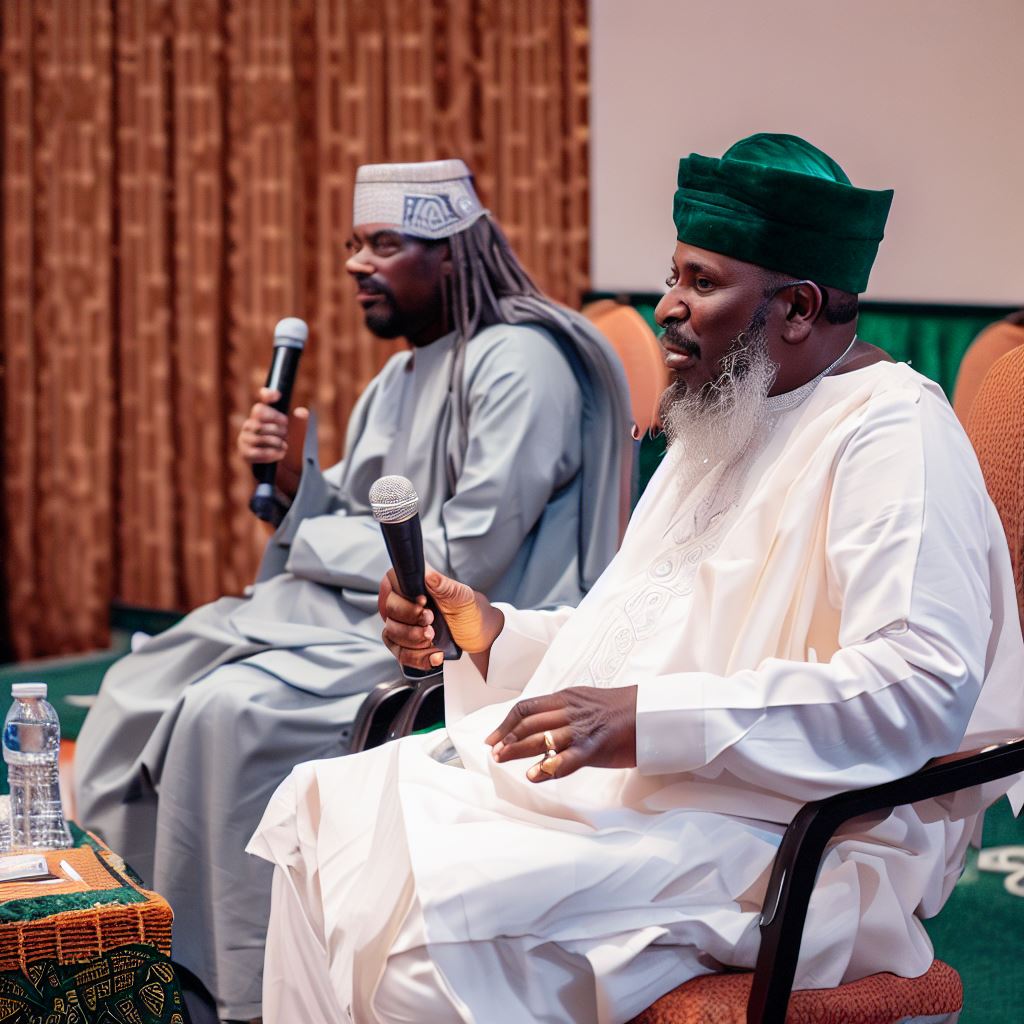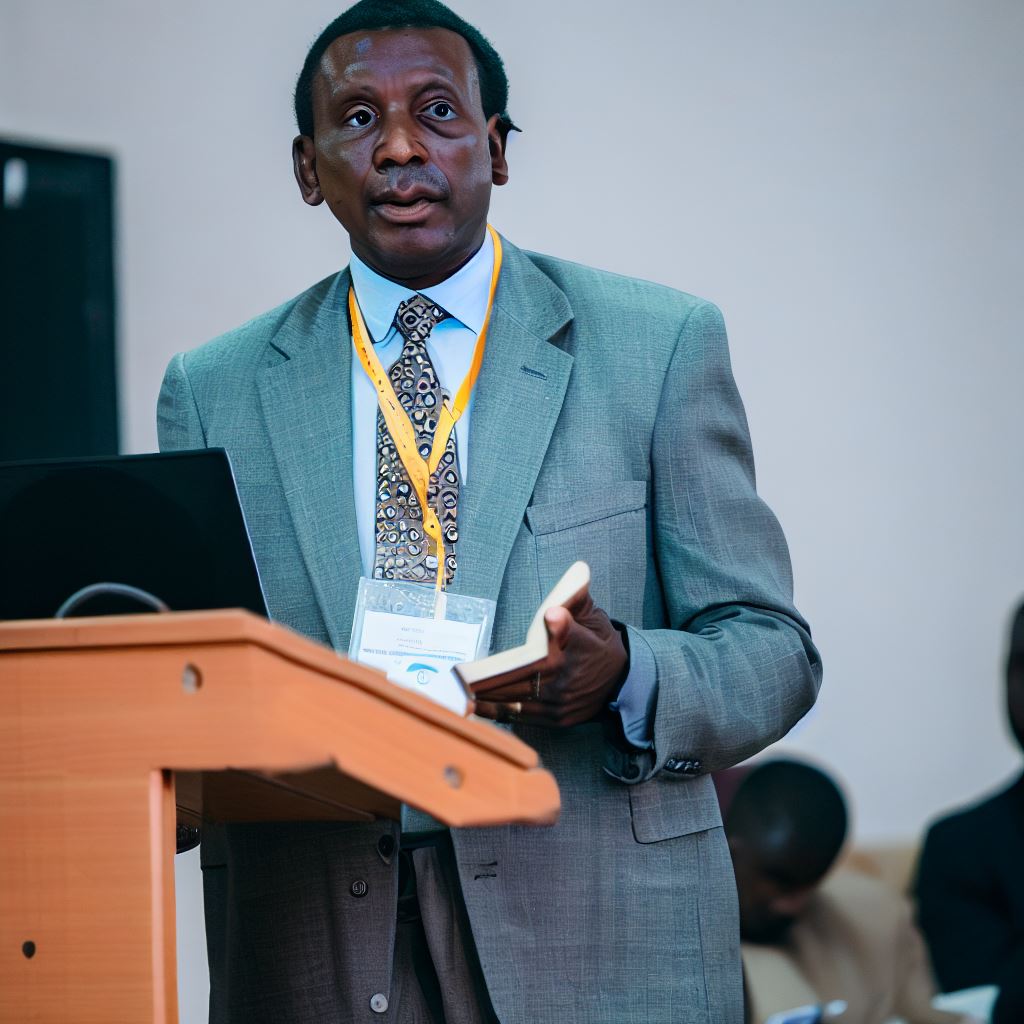Introduction
Education is pivotal for youth development, shaping future leaders and fostering progress. In Nigeria, imams hold a significant influence over the youth, guiding them spiritually and intellectually.
This post explores the profound impact of imams on youth education in Nigeria, highlighting their role as educators and mentors.
Background on Islamic education in Nigeria
Overview of the Muslim population in Nigeria
Nigeria is home to one of the largest Muslim populations in Africa, with approximately 50% of its population being Muslim.
Islam has a long history in Nigeria, dating back to the 11th century when Muslim traders brought the religion to the region.
Today, Nigerian Muslims are predominantly Sunni and follow the Maliki school of jurisprudence.
Islam plays a significant role in the cultural, social, and political life of Nigeria, especially in the northern part of the country.
The Islamic education system in Nigeria
The Islamic education system in Nigeria is known as the Almajiri system, which focuses on memorization of the Quran.
Almajiri schools are traditional Islamic schools where children study under the guidance of a teacher called a Mallam.
These schools are prevalent in the northern states of Nigeria and are often associated with poverty and social challenges.
While the Almajiri system has been criticized for its lack of formal education, it remains an integral part of Islamic education in Nigeria.
The role of imams as religious leaders and teachers
Imams are highly respected religious leaders within the Muslim community and play a crucial role in shaping the minds of Nigerian youth.
They lead congregational prayers, deliver sermons, and provide spiritual guidance to their communities.
Imams also serve as teachers in Islamic schools, where they educate students on religious principles, morality, and Islamic law.
They have the responsibility of instilling Islamic values and promoting the practice of Islam among the youth.
Their teachings influence the attitudes, beliefs, and behavior of young Muslims, shaping their understanding of Islam and the world around them.
In summary, Nigeria has a significant Muslim population, and Islamic education is deeply rooted in the country’s culture.
The Almajiri system, though criticized, remains an essential part of Islamic education. Imams, as religious leaders and teachers, have a crucial role in imparting Islamic knowledge and values to the youth.
Read: The Ethics and Moral Standards for Imams in Nigeria
The role of imams in shaping minds
Imams play a crucial role in shaping the minds of Nigerian youth through various ways.
Their influence extends beyond religious teachings and moral guidance, extending to academic and civic aspects as well. Let’s explore the different dimensions of their role.
The role of imams in shaping minds goes beyond imparting religious knowledge.
They contribute to the holistic development of Nigerian youth, providing them with a strong moral compass while nurturing their intellectual abilities.
Religious teachings and moral guidance
Imams have a significant influence on moral values and ethical behavior.
They serve as role models, guiding and inspiring young individuals towards virtuous conduct.
Teaching religious principles and values is another essential duty of imams.
They educate youth about the teachings of Islam, imparting knowledge that enables them to lead a righteous life.
Imams act as moral guides, helping youth navigate complex ethical dilemmas and develop a sense of righteousness.
Their teachings instill values such as honesty, compassion, and integrity, which are vital for personal and societal growth.
Imams also emphasize the importance of community involvement and social responsibility. They urge youth to actively participate in community development projects and engage in initiatives that benefit society.
Academic guidance and supervising Islamic schools
Imams have a crucial role in the establishment and management of Islamic schools.
They oversee the operations and ensure that these institutions maintain high educational standards.
Imams make sure that students receive proper education by supervising the curriculum and teaching methods.
Their involvement helps maintain the quality of Islamic education in Nigeria.
Furthermore, imams play a significant role in the academic realm.
By establishing and managing Islamic schools, they ensure that the youth have access to quality education grounded in Islamic principles.
These schools serve as centers of learning, fostering an environment conducive to comprehensive education.
Imams also oversee the curriculum, making sure that students receive a well-rounded education that encompasses both religious and secular subjects.
This approach equips young individuals with the necessary skills to excel academically while staying true to their religious beliefs.
Fostering critical thinking and civic engagement
Imams encourage youth to think critically and question the world around them.
They promote intellectual curiosity and inspire young minds to seek knowledge beyond religious studies.
Moreover, imams foster critical thinking among the youth.
They encourage questioning, rational analysis, and a deeper understanding of religious doctrines.
By promoting intellectual inquiry, imams empower young minds to engage critically with religious teachings, forging a stronger connection to their faith.
Imams also emphasize the importance of civic engagement.
They inspire youth to actively participate in their communities and become agents of positive change.
Whether through volunteering, advocacy, or community initiatives, imams encourage young individuals to contribute meaningfully to society.
In essence, imams play a multifaceted role in shaping the minds of Nigerian youth.
From providing religious teachings and moral guidance to overseeing academic institutions and fostering critical thinking, imams contribute significantly to the development of well-rounded individuals.
Their influence extends beyond the walls of mosques, positively impacting the future of Nigeria by guiding young minds towards a path of righteousness, knowledge, and social responsibility.
Read: Influence of Nigerian Imams in Global Islamic Thought

Challenges faced by imams in youth education
Imams in Nigeria face numerous challenges in their efforts to shape the minds of youth through education.
These challenges hinder the progress and effectiveness of their educational endeavors.
This section will explore the major challenges faced by imams in youth education in Nigeria.
Lack of resources and infrastructure
One of the primary challenges faced by imams in youth education is the lack of resources and infrastructure.
Islamic schools often struggle with insufficient funding, which affects the quality of education they can provide.
Without adequate financial support, these schools find it difficult to hire qualified teachers, maintain facilities, and provide necessary educational materials.
Additionally, many Islamic schools in Nigeria lack access to educational technology and materials.
Limited or no access to computers, the internet, and libraries hinders the students’ ability to engage with modern educational methods and resources.
This further widens the gap between Islamic education and secular education.
Influence of secular education on Islamic teachings
Another major challenge faced by imams is the influence of secular education on Islamic teachings.
Islamic schools aim to educate students in Quranic teachings and Islamic principles while also providing a well-rounded education.
However, striking a balance between secular subjects and Quranic teachings can be challenging.
Imams are often tasked with finding ways to incorporate subjects like mathematics, science, and literature into the curriculum without diluting the focus on Islamic teachings.
This challenge becomes even more complex when addressing potential conflicts between Islamic and Western education, which can arise due to cultural differences and conflicting ideologies.
Combating societal issues and radicalization
Imams also face the daunting task of combating societal issues and radicalization among the youth.
Nigeria has experienced radical ideologies and extremist groups that can influence impressionable minds.
Imams must respond to these extremist ideologies by emphasizing the true teachings of Islam, promoting peace, tolerance, and counteracting misinformation.
The responses to extremism require imams to engage with the community, identify potential radicalized individuals, and provide guidance and counseling to prevent further radicalization.
This puts additional pressure on imams, as they not only serve as educators but also as mentors and figures of authority in the community.
In fact, imams in Nigeria face significant challenges in their pursuit of youth education.
The lack of resources and infrastructure, the influence of secular education on Islamic teachings, and combating societal issues and radicalization all pose obstacles to the effective shaping of youth minds.
Despite these challenges, imams continue to play a crucial role in shaping the education and minds of Nigerian youth, striving to provide a balanced and comprehensive education while instilling the principles of Islam.
Read: Cultural Influences on the Imam Profession in Nigeria
Uncover the Details: Building a Community: A Nigerian Pastor’s Strategic Approach
Success stories and positive outcomes
Examples of imams who have positively impacted youth education
- Imam Musa: A remarkable story of an imam who supports educational opportunities
- Imam Ibrahim: Fostering academic achievements and personal growth among young Muslims
Surveys and statistics showcasing educational improvements
- Research reveals significant improvement in academic performance due to imams’ influence
- Imams play a crucial role in reducing dropout rates and ensuring educational continuity among youth
Read: How to Become an Imam in Nigeria: A Step Guide
Discover More: Celebrating Diversity: Different Sects in Nigeria’s Clergy
Conclusion
Recap of the role of imams in shaping minds in Nigerian youth education
Imams play a crucial role in shaping the minds of Nigerian youth through their teachings and guidance.
They provide moral guidance and instill values that help shape the character of the younger generation.
Importance of Islamic education in nurturing youth development
Islamic education is fundamental in nurturing the holistic development of Nigerian youth.
It helps them cultivate moral values, acquire knowledge, and develop a strong spiritual foundation that guides their actions and decisions.
Final thoughts on the future prospects of imams’ influence on youth education in Nigeria
The future prospects of imams’ influence on youth education in Nigeria are promising.
With their continued dedication, knowledge, and passion, imams have the potential to positively shape the minds of the younger generation and contribute to the nation’s progress.
The role of imams in shaping minds in Nigerian youth education is significant. Their influence and guidance foster the growth of principled individuals who can positively contribute to society.
As Nigeria progresses, the importance of Islamic education in youth development cannot be underestimated.
Imams have the power to shape the future leaders of the nation, and their role should be acknowledged and supported. By nurturing the minds of the youth, imams lay the foundation for a brighter tomorrow.




